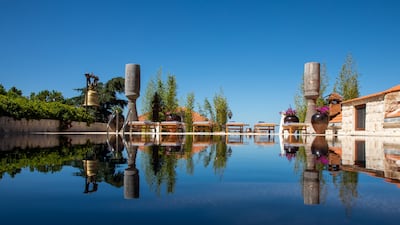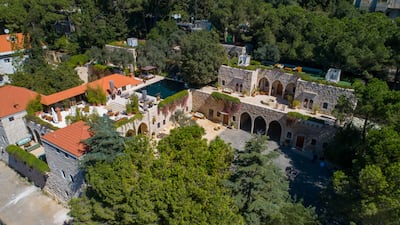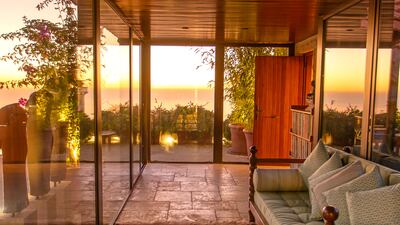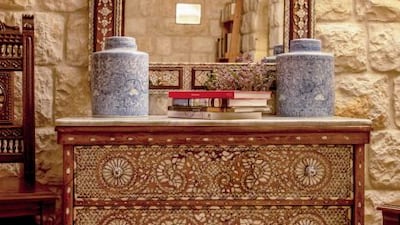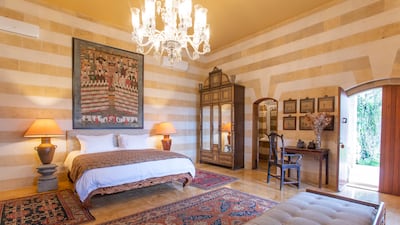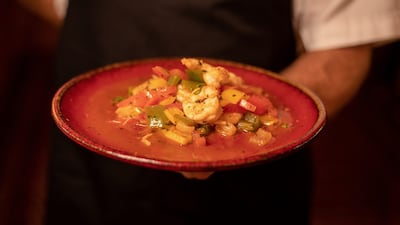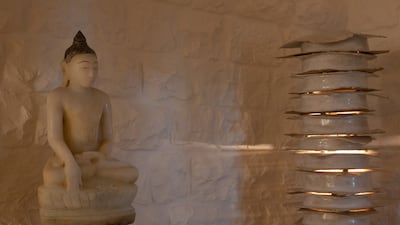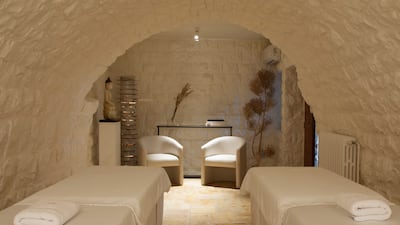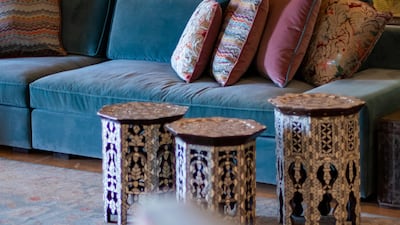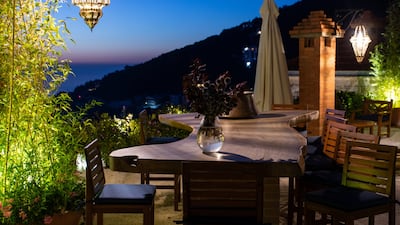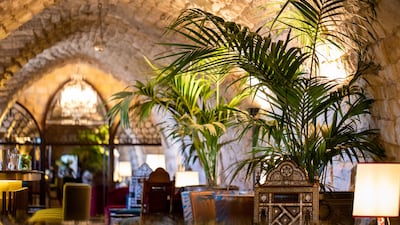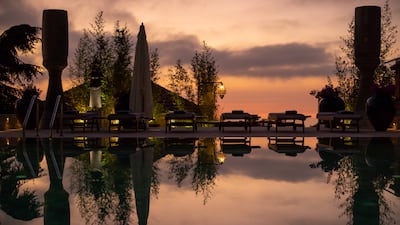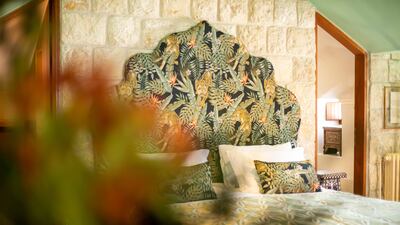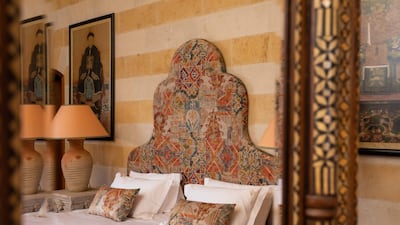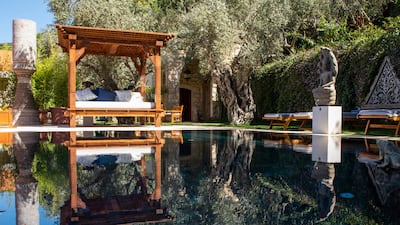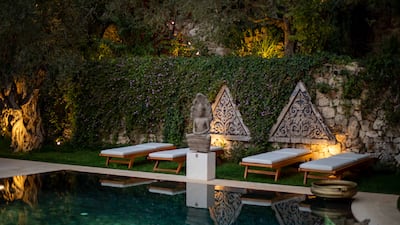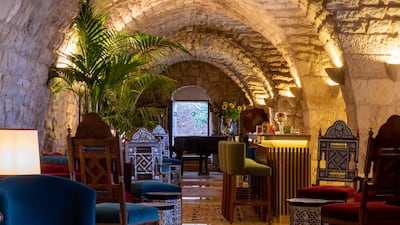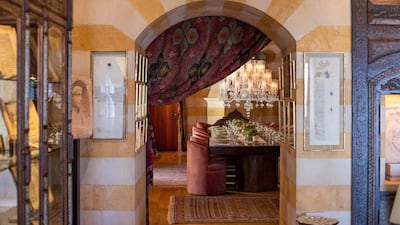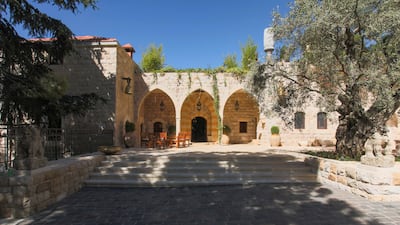“As a child, I remember sitting on the steps facing the entrance of the house. I was wearing a puffed-sleeved polka dot dress with a matching hair bobble and eagerly awaiting the arrival of my newborn sister from the hospital,” says Carla Baz, designer and founder of Lebanon’s Indira guest house.
“A year and a half later, I sat on those same steps, this time next to my sister, as we waited for our little brother to arrive home. It has always been the ‘nest’ and the origin of our family memories. Today, when I walk into the house, I still sense those memories, mixed with a timeless, modern ambience. I feel like we honoured the soul of the house perfectly.”
Nestled in the village of Kfour, surrounded by mountains, the one-time private residence reopened as a boutique guest house in October. “As a designer — and daughter of passionate collectors — it has always been my dream to preserve this house that means so much to me, and transform it into a place that can be enjoyed by many, ensuring its perpetuity.”
With nine suites, a slate-lined pool, spa and views over the Mediterranean, Indira (which means splendid in Sanskrit) offers a delightful rural getaway, paired with the warmth of a family home. “It’s been transformed into a place for guests, so we’ve gotten rid of elements like the toy room where we used to play, but the common areas and most of the furniture were the same as what’s there today,” Baz tells me when we meet over coffee in Dubai, where she lives.
A key focus for Indira’s transformation was ensuring that its unique features were preserved, including the space that convinced her parents to purchase the house in the 1980s.
“There is an unusually beautiful vaulted arched cave that some 250 years ago was the stables,” says the designer. “When my parents saw the house, that space was one of the main reasons they bought it — they envisioned it filled with warm lighting and long tables, and they transformed it into a place to host dinner parties.”
Today, guests staying at Indira have the chance to enjoy the former vaulted stables, which have been remodernised into a longitudinal bar.
Despite its small size, Indira has two in-house chefs — one local and the other from Thailand — who collaborate to offer an original menu fusing modern Levantine and Thai cuisine. But perhaps the most delectable element of a stay here — more than the Buddha-lined swimming pool or clifftop views — is the extensive collection of artefacts. This tapestry of treasures was lovingly gathered from across Asia by Baz’s parents.
“My mother and father had this collection of items that they acquired on their travels and I wanted to share it with other people. My father in particular fell in love with Asian civilisations and my parents visited the continent over many decades. Everywhere we went, they would make a point to go to galleries and buy something special; they really cultivated a passion,” she explains.
Today, the collection of original oriental art spans the Middle East to the Far East. There are more than 40 portraits, 100 framed Quran pages, ancient bibles, Bedouin silver, jewellery, coins, antique weapons, statues and more, and it’s something Baz wanted as a central focus for Indira, as a way to add to its character and solidify its standing as a meeting place for people from all walks of life.
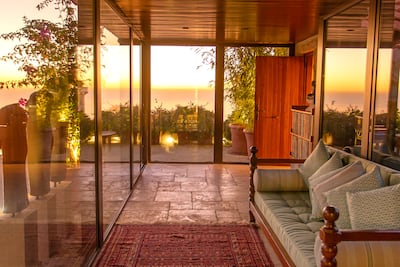
To do so, she turned to Carole Tarazi Nasnas and Camille Tarazi of Maison Tarazi — Beiruti restoration and handicraft specialists for more 160 years. With expertise in customised oriental art and decoration, the trio worked on a shared vision of preserving the house’s original character, instilling this treasure trove of artworks and introducing a modern spirit.
The project took about a year from initial brainstorming to its opening in October, but the majority of the transformation took place over six weeks of intensive on-the-ground work.
What makes such a rapid turnaround even more impressive is that it happened at a time when Lebanon is suffering through an intense crisis. Because of this, and the tight turnaround time, the trio committed to using only locally available resources — a decision that stands testament to the richness of the craftsmanship available in the country.
“We worked with local partners to source as much as we could in the region. And it just goes to show that this heritage Lebanon has is so beautiful,” says Baz.
Awaida Construction and Engineering was one partner that came with proven restoration expertise, having been involved in parts of Beirut’s rebuilding following the city’s port explosion in August 2020. “They’re specialists in types of craft that don’t exist anymore,” explains Baz.
Warde fabrics, a materials importer in Lebanon for more than 100 years, helped the design team source a variety of beautiful fabrics, all available within the project’s turnaround time.
And, keeping it in the family, Baz’s aunt in Beirut recruited a team of seamstresses, each of whom had previously worked for various Lebanese couturiers. The women toiled away in her kitchen to repurpose old and leftover fabrics from the guest house, transforming them into a collection of sustainable abayas that are now offered to guests to wear when checking in.
This sustainable focus prevails at Indira, where the creation of the guest house is also a boost for the rural community in which it sits. Travellers book a stay and come to explore the beautiful mountain pastures — Kfour is known for its walking trails, hiking routes and colourful landscapes. At the same time, they explore the region and bring new business, whether by purchasing sandwiches from the nearby family-run Abou Tony restaurant or paying a visit to neighbouring Beit Trad, Indira’s long-running guest house neighbour.
The hideaway fits into a growing network of guest houses opening in Lebanon to offer a new form of ecotourism, allowing guests to reconnect with the country and come to understand it better.
“There are guest houses all across Lebanon, each with their own individual character and offering that embodies the specific atmosphere, village and location where they’re based.
“It’s such a small country and there are so many contrasts, so many differences and so many influences. It’s so rich in that sense. It’s so intricate, it has to be protected,” Baz says.
But protection has been in short supply in this country of late. From the Covid-19 pandemic and its implications to the port explosion and the country’s ongoing food and fuel crisis, the situation is “very, very concerning, it’s gut-wrenching”, says Baz, sadly.
“The Lebanese people are — I don’t like to use the word resilient because I feel like it has backfired recently, it’s been put to the test a bit too much, but it’s their resource — they simply love to live.”
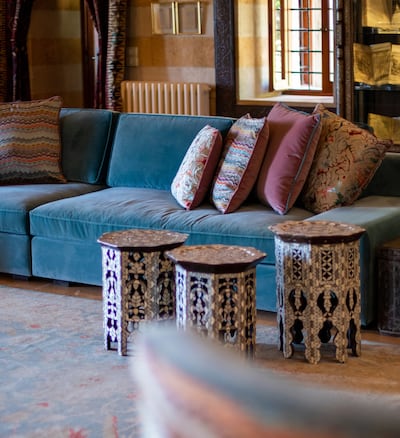
Perhaps it’s that Lebanese resilience, or simply the childhood bonds that tie her to Indira, that propel Baz’s undeniable enthusiasm for the project. Either way, the result is a small helping hand to a country striving to get back on its feet.
“Lebanon is still a country that relies a lot on tourism. It’s critical that we keep generating jobs and opportunities, investing money, time and energy,” the designer says.
“When I look at the staff at Indira, most are young, they’re enrolled at university and are doing the job to pay for their studies. They are vibrant, intelligent and ambitious, and spending time with them fills me with hope,” she adds.
“Perhaps the most memorable aspect of this whole project has been the human experience. Through the inception, the preparation, the production and now even the operations, it fills me with hope, and is a reminder that Lebanon is a country that’s filled with so much history — yes, its complex, but it is home to so much beauty. And that’s something that needs to be shared with the world."
